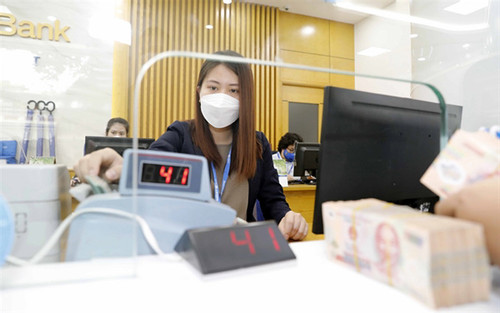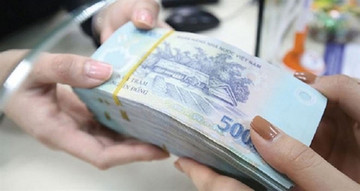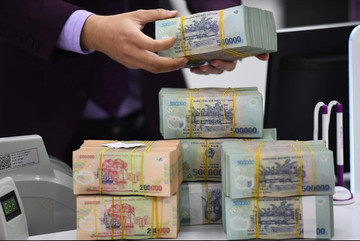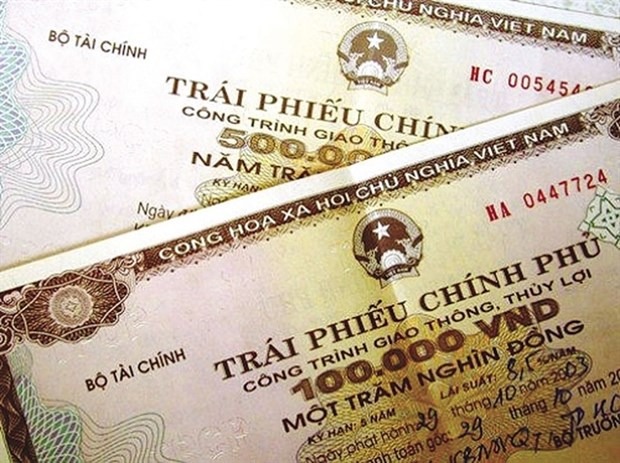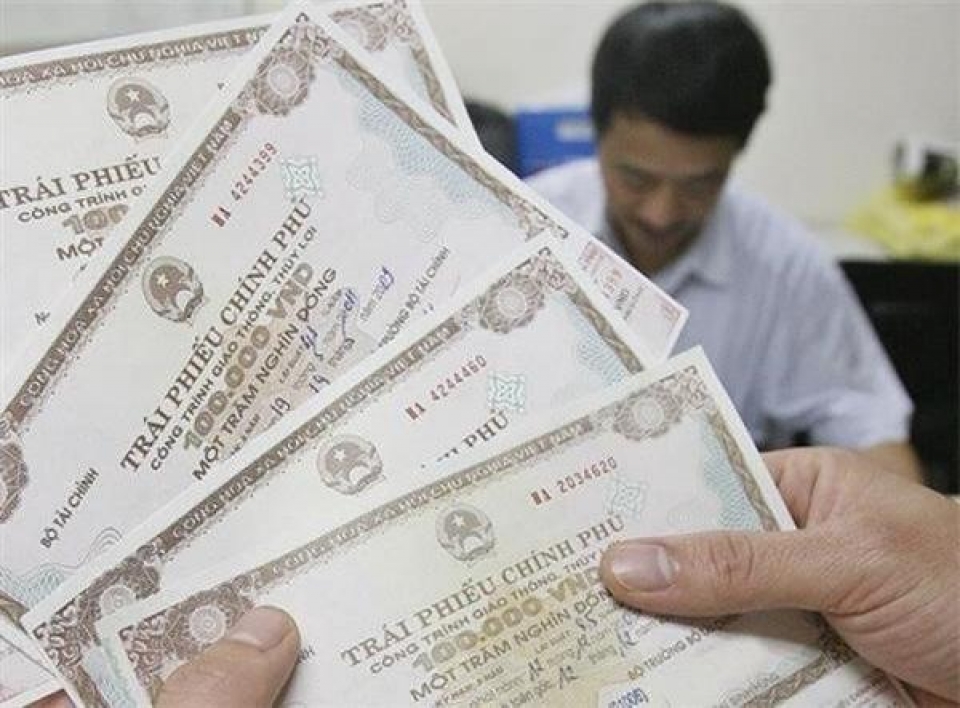- © Copyright of Vietnamnet Global.
- Tel: 024 3772 7988 Fax: (024) 37722734
- Email: [email protected]
bond market
Update news bond market
Vietnam's bond market remains quiet this year
The scale of debt in the corporate bond market is less than 15 per cent of GDP.
Measures needed to revive investors’ confidence in Vietnam stock, bond markets
Korea and China have issued policies to support the market and businesses amid growing worries about a credit crunch in the bond and short-term money markets.
Bank stocks hit by corporate bonds maturity
Bank stocks are sold out strongly, despite good business results, due to pressure of corporate bonds nearing maturity. Many stocks even fell to the lowest range in last two years as investors feared cash flow risks.
Businesses rush to buy back bonds before maturity
After cancellation of bonds issued by Tan Hoang Minh and the issuance of a new decree on bond market management, businesses have been rushing to buy back bonds before they become mature.
Corporate bond market reform adds safety net for investors
The fresh and stringent legislative framework for the corporate bond market is slated to pave the way for a better debt sector in Vietnam, while the interests of issuers and investors could be safeguarded.
Bonds maturity worry real estate businesses
From the end of this year onwards, real estate businesses will face a worrisome period due to cash flow shortages as corporate bonds will begin to mature.
A new move for open market operations
The State Bank of Vietnam (SBV) has recently made a new move regarding open market operations (OMO). Valuable papers are purchased at a competitive interest rate, instead of a fixed rate as before.
Loopholes in corporate bond market
Since 2018 the Government has issued three Decrees to regulate the Corporate Bonds market which has now grown substantially.
Bonds circulating within banks
When several banks announced the issuance of thousands of billion dong to mobilize medium and long-term capital at high interest rates, a rush for buying bonds followed, which turned into a frenzy towards the end of 2021.
International credit rating organisations interested in Vietnamese market
Many international credit rating organisations want to join the Vietnamese market, attendees heard at a seminar in HCM City on Friday.
Finance experts warn of ‘bond bubble’
The year 2020 has seen a ‘bond issuance movement’. Businesses have rushed to issue shares to mobilize capital as loose requirements made it easier than ever to do this.
VN bond market remains underdeveloped despite years of existence
While in developed markets corporate bonds act as the major channel that conducts capital for the economy, in Vietnam they are still in a very early stage of development.
COVID-19-induced uncertainty affects bond markets
The COVID-19 pandemic continues to drag on local currency bond markets in emerging East Asia, including Vietnam, as investment sentiment globally and in the region wane and containment measures limit economic activity.
COVID-19-induced uncertainty continues to drag on emerging East Asian bonds
The coronavirus (COVID-19) pandemic continues to drag on local currency bond markets in emerging East Asia, including Viet Nam, as investment sentiment globally and in the region wane and containment measures limit economic activity.
COVID-19, dimmed global outlook weigh on bond market
 The novel coronavirus (COVID-19) pandemic and deepening global economic uncertainty are putting great pressure on Viet Nam’s local currency bond...
The novel coronavirus (COVID-19) pandemic and deepening global economic uncertainty are putting great pressure on Viet Nam’s local currency bond...
Which industries will prosper in 2020?
 The experts attending the Vietnam Investment Professionals Forum (VIPF) all predicted that the picture of the Vietnamese stock market would be bright in 2020 with the VN Index likely to exceed 1,200 points.
The experts attending the Vietnam Investment Professionals Forum (VIPF) all predicted that the picture of the Vietnamese stock market would be bright in 2020 with the VN Index likely to exceed 1,200 points.
Foreign investors pour big money into VN bonds
 While foreign investors continue selling in the share market, they have been buying more than selling in the bond market since early 2019.
While foreign investors continue selling in the share market, they have been buying more than selling in the bond market since early 2019.
Vietnam’s bond market grows 1.9% in Jan-Sep, reaching US$55 billion
 This expansion was due mainly to a 4% on-quarter growth in government bonds to US$51 billion as the central bank increased issuance of bills.
This expansion was due mainly to a 4% on-quarter growth in government bonds to US$51 billion as the central bank increased issuance of bills.
Is the corporate bond market too hot?
 Since issuing corporate bonds has become easy thanks to open regulations, it is necessary to tighten control over bond issuance.
Since issuing corporate bonds has become easy thanks to open regulations, it is necessary to tighten control over bond issuance.
Investors rush to pour money into bond funds
VietNamNet Bridge - Many banks, fund management companies, insurance and securities companies have been setting up debt funds.
